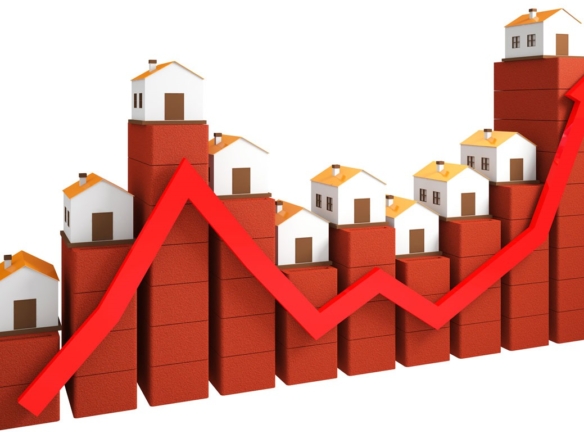Perhaps one of the first things that come to your mind about real estate investing is buying a home. However, that may not only be the case as investors have numerous options and approaches on how they can begin their real estate investments.
If you want to explore real estate investing, there are various things you should know. Whether you’re a beginner or an experienced investor, this guide may be ideal for you.
What To Know About Real Estate Investing
Real estate investing refers to buying a piece of land and the properties attached to it. Anything man-made or natural additions to the land, such as fences, buildings, or trees, are considered real estate.
Generally, there are categories of real estate investing, including industrial, commercial, and residential. And depending on your preferences and goals as an investor, you can focus on any of these categories.
For instance, if you’re just getting started, you can consider opting for a residential property first. To learn more about the best possible residential property within your area to invest in, you can reach out and consult a real estate professional.
Ways To Invest In Real Estate
As mentioned earlier, there are various ways you can explore the real estate industry and start your investing journey. Here’s a list of what you can do, to name a few of your options:
1. Flipping Houses
Being a real estate flipper is generally different from being a landlord. Typically, flippers purchase properties intending to renovate and hold them for a few months and then sell them to property buyers to earn profits.
When it comes to house flipping, there are two main approaches:
– Hold And Resell: Instead of making significant upgrades, you can invest in the property in a rising market and then hold it for a short period before selling to earn a profit.
– Repair And Upgrade: This approach often involves increasing the property’s value with design upgrades and repairs. Ideally, investors complete the work as soon as possible and sell at a higher price to maximize their investment.
Unfortunately, one of the cons of house flipping is that you may run the risk of not being able to sell the property at a price that will give you profits. This can be a challenge, especially since this type of investment can be highly costly. However, once house flipping is done successfully, it can be a great and profitable real estate investing strategy.
2. Real Estate Investment Trusts (REITs) Investing
If you’re new to real estate, perhaps REITs could be one of your options to get started. One of the most common types is equity REITs, which are firms that own and manage income-generating real estate.
As an investor, you need to buy shares in such companies and get income through dividends paid regularly. So, if you can’t pursue real estate full time and want to enter the world of real estate investing, REITs may be an option to explore as they can help generate passive and steady revenue streams.
Unlike investing in stocks, you can get better dividends with REITs. To get started, you can look for publicly-traded REITs and check their records. It may also be helpful to research the current dividends and anticipated growth of the companies. In addition, you may also have to check the funds from operations. If you’re unsure about your options, you can always consult a financial advisor to help you choose the REITs to invest in.
Many investors use REITs to diversify their portfolios and serve as the gateway into the real estate industry. Overall, REITs can be an option for beginners since they can enable investors to benefit from real estate. Even if different variables may influence REITs, this investment option can offer solid returns with low risk.
3. Rental Properties
Another way to invest in real estate is through rental properties. Rental property investment can provide investors with an income through eventual value appreciation and monthly cash flow. Generally, cash flow is the money you get from the rent after deducting the related expenses.
Often, the expenses include maintenance fees, insurance, taxes, mortgage payments, allowances for vacancies, etc. If you can acquire rental properties below their market value, it could be a great advantage because in cases like this, you have already made some money from buying them.
Furthermore, you may also find poorly managed properties or those that require work. You can purchase and improve them to make money. Although you shouldn’t count on appreciation as a source of income, it can be an excellent bonus once the market values increase significantly.
The only downside about rentals is that the market is quite selective. It might not always be an ideal fit for every location. Basically, the costlier the region, the harder it could be to find great rentals.
4. Wholesale Real Estate
Wholesaling in real estate means you’ll serve as the middleman between somebody who wants to buy and someone who wants to sell, then make profits for their efforts. It’s different from being active as real estate agents because wholesalers aren’t required to have a license since they technically own the prices they’re selling.
There are different types of wholesaling in real estate, and these include the following:
– Land Wholesaling
It’s the wholesale process for raw lands. Typically, raw land is undeveloped and doesn’t have structures. It can be sold and bought quickly online. In addition, it can be cheap for investors to maintain and purchase because property taxes are affordable and there aren’t structures. Land wholesalers can easily triple or double their investments by reselling the land they buy.
– Residential Wholesaling
It’s focused on condos, multi-family homes, single-family residences, or townhomes. Generally, the targeted homes are undervalued or distressed compared to some houses in the area.
The wholesalers enter into contracts with the sellers to purchase the house and locate buyers who will buy the contracts for them for a particular amount of money. Then, buyers will assume the contracts and insert themselves into the deals in place of the wholesalers.
Normally, residential wholesalers don’t take possession of their properties under contracts. If they cannot find a buyer to assume their contracts with, they can back out of the deals before losing their deposits.
– Commercial Wholesaling
This type involves strip malls, commercial buildings, apartment buildings, office buildings, and more. Wholesaling commercial properties often follow the same path as residential wholesaling.
The only difference is that rather than searching for undervalued houses, you’re finding buildings with below-market rents or having low occupancy. The real estate company or developer you’re wholesaling to may see such properties as an opportunity to make value that they’re willing to pay you for.
5. Real Estate Crowdfunding
Real estate crowdfunding has become popular in the past few years. Similar to REITs, you can earn passive income from real estate crowdfunding.
Moreover, both options may enable investors to direct money toward real estate properties and get returns without actively managing the property. The primary difference between real estate crowdfunding is that you’re directly investing in tangible real estate assets compared to REITs, where you’re investing money with companies that also invest in real estate.
One of the benefits of real estate crowdfunding is that you have control over where your investment is being directed. Using a reliable platform, you can directly choose real estate properties to funnel your cash into.
In terms of drawbacks, real estate crowdfunding tends to be more illiquid than REITs. If you opt to invest in a crowdfunding platform, expect your money to be tied up in the meantime.
4 Steps To Get Started With Real Estate Investing
Real estate investing generally requires money, time, effort, and hard work. Depending on your targets and goals, you can be a house flipper or a passive real estate investor.
To help you get started in your real estate journey, you can consider following these steps:
1. Evaluate Your Finances
Much like with any investment, your financial capacity can determine the depth and type of investments you can execute. You need to know first where you are financially. And to do this, you’ll need to calculate your liabilities, savings, income, property ownership, and total debt. When you know your financial net worth, the next thing you can do is think and visualize your real estate investment goals.
Note that if you don’t have cash for emergencies, you may want to create one first before starting. The reason behind it is that many real estate investments can’t be easily converted into cash. And in some cases, while the income is promising, real estate investments can take a while to grow.
2. Secure Financing
As mentioned, finance plays an essential role in your real estate investment. In some cases, you can start funding your investment with your savings. And if you want to invest in real estate directly, you can apply for traditional mortgage loans. Some online real estate platforms may provide financing services to investors.
On the other hand, many online brokers may not require more money to get started trading real estate mutual funds and REITs. You may even increase your buying power by opening margin accounts with online brokers. Typically, margin accounts let you borrow the same amount as your account balance, maximizing your buying power.
3. Look For Investments
When making the best investment decisions, never rush the process and take advantage of available resources. Some online real estate listing websites offer active real estate investors complete details about the properties for sale. Some online brokers’ websites may also provide free research tools for mutual funds and REITs.
The key is to study your market and the property you’re eyeing. A significant investment as this requires due diligence and substantial research to ensure your money’s worth.
4. Execute
Always approach your first real estate investment like a newbie worker. If necessary, consider getting as much assistance from professionals as you can. Don’t worry about making some mistakes, but always learn from them.
You should also not focus too much on the property’s cost. Before you decide, consider the expenses, such as fees, closing costs, and loan interest associated with your purchase.
Best Tips To Succeed In Real Estate Investing
Real estate investing is never easy. It can be complex at times, but it’s not impossible to achieve success. Regardless of your experience as an investor, you can keep in mind these insights to succeed in real estate investing:
– Set Your Goals
As a real estate investor, you shouldn’t start your journey or look at various properties without setting your goals. Forget about being an expert in the practices, terminologies, negotiation, analysis, computations, and other specifics. If possible, focus on resolving what you want to accomplish.
Moreover, you can ask yourself what you like to see in your investments. Moreover, blindly jumping into real estate without knowing why can lead you to disaster. So, if you don’t want that to happen, consider setting your investment goals before diving into real estate deeply.
– Diversify Your Investments
While you can always invest all your money in a single property, it may not always be to your advantage because it could limit your potential to earn more profits. So, if you want to maximize your earnings, consider diversifying your investments.
For example, you can make other investments in some cities and states instead of investing in a small geographic region. It can give you better opportunities to earn more and expand your real estate knowledge. Plus, investing across a bigger geographical area can help protect your investment portfolio against the volatility of the local market.
Wrapping Up
Real estate investing might be intimidating at first for many investors. Fortunately, due diligence is now made easier with today’s advanced technology. Even connecting with highly experienced real estate investors and professionals is easier today.
To succeed in real estate investing, note that you need to be realistic, do your homework, and be smart and strategic to take advantage of the different tools to maximize your profits fully. This way, you can quickly make well-informed decisions and reach your goals.




